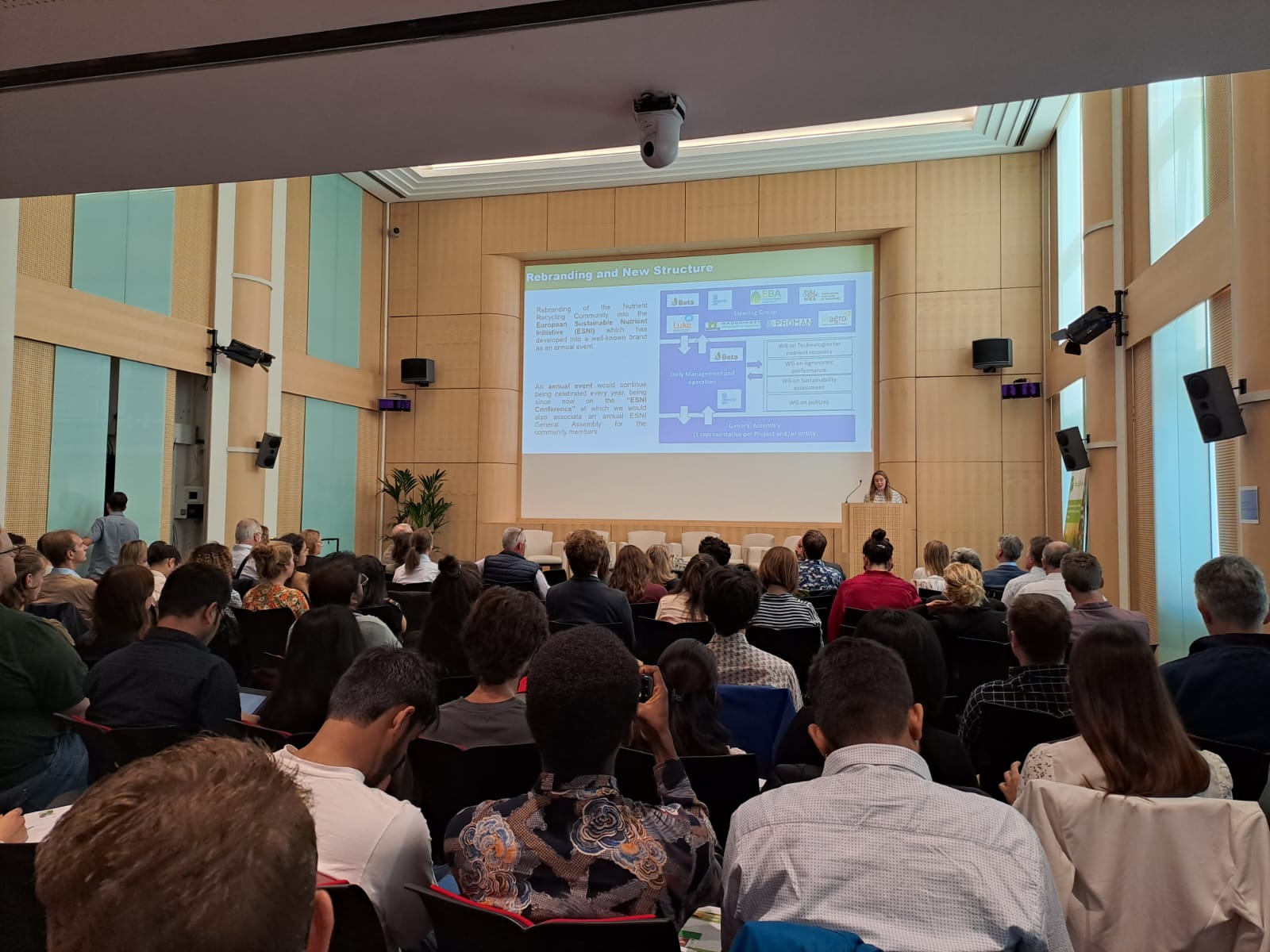CT BETA’s research in the field of sustainable nutrient management, protagonist of the ESNI Conference
During this edition, the constitution of the ESNI Community was officially announced.

A group of researchers from the UVic-UCC BETA Technology Center had a prominent presence at the fourth conference of the European Sustainable Nutrient Initiative (ESNI), where they presented part of the results of several European projects related to sustainable management of nutrients. The ESNI, which took place this week in Brussels, is a landmark event in the field of sustainable nutrient management organized by the Biorefine Cluster Europe.
During this edition, the constitution of the ESNI Community was officially announced. This new community aims to go far beyond what was until now an annual conference, and wants to group together projects, entities and individuals working on the sustainable management of nutrients to promote collaborations, and advance research and innovation in a coordinated and joint manner . The ESNI Community is coordinated by Ana Robles Aguilar, senior researcher at the BETA Technology Center, who, together with the support of the University of Ghent, will manage the activities and day-to-day life of this community.
Presence of European projects
In the framework of the ESNI conference, the Novafert project has co-organized a workshop on methodological priorities of life cycle analysis (LCA), the routes of nutrient recovery that allow obtaining new types of biofertilizer products, to move towards a harmonized approach to the assessment of its sustainability. Part of the work done in this area has been developed within the framework of the Working Group on Sustainability for Nutrient Recovery of the Biorefine Cluster Europe.
In a joint session, the FERTIMANURE and SEA2LAND projects presented their experience on the economic cost-benefit and profitability of recycled nutrients incorporated into fertilizer products. In two different areas, these two projects have presented comparable biorefinery models for the recovery of bio-based fertilizers from livestock droppings, and waste from the fishing and aquaculture sectors.
Finally, with regard to R+D+i projects, NutriBudget members have organized a participatory session in which they discussed how to optimize nutrient flows and the concept of “regional nutrient budgets” as elements for move towards a more sustainable agriculture. The session served to discuss possible mitigation measures, measurement indicators or useful modeling processes.
